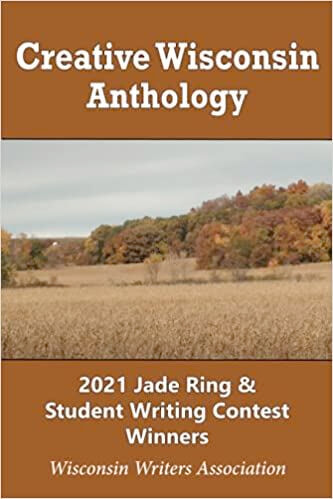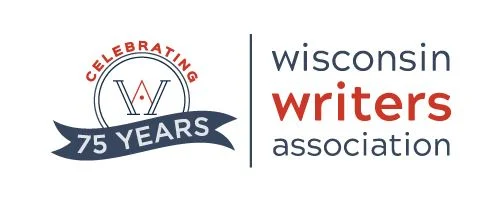Zeddie Q. Hyler fought discrimination, intimidation and racial covenants to build “The Ponderosa” in 1955 – with some key allies.
BY Milwaukee Magazine Staff
 EDITOR’S NOTE: Local writer Lora Hyler won the 2021 Wisconsin Writers Association’s nonfiction Jade Ring for her essay on her uncle’s 1955 move to build a home in Wauwatosa, a suburb whose racial covenants made it off limits to Black homeowners. The city that once fought the home’s building on 113th Street made it a historic landmark last year. Hyler’s essay is published here in its entirety, with minimal editing.
EDITOR’S NOTE: Local writer Lora Hyler won the 2021 Wisconsin Writers Association’s nonfiction Jade Ring for her essay on her uncle’s 1955 move to build a home in Wauwatosa, a suburb whose racial covenants made it off limits to Black homeowners. The city that once fought the home’s building on 113th Street made it a historic landmark last year. Hyler’s essay is published here in its entirety, with minimal editing.
The Bill of Rights, One College-educated Negro Man, and a 1955 Protest by 39 White Wauwatosa Women
BY LORA HYLER
It’s doubtful Zeddie Quitman Hyler personally knew any of the 39 prominent white women of Wauwatosa who joined him in taking a stand. It was 1955, after all.
Zeddie Q. Hyler was an imposing, bespectacled negro fellow of 6’3” who had defied his father and paid his own way through college. Under the relenting sun of Mississippi, he had stared down Jim Crow laws. In 1944, he eagerly joined the Great Migration to head north for what he hoped were better opportunities for someone willing to work hard using his intellect rather than his back.
Armed with a bachelor’s degree in vocational education from Alcorn Agricultural and Mechanical College in Alcorn, Mississippi, Zeddie was determined to prove his father wrong. His place was not in the fields. He would not view the color of his skin as a sentence, relegating him and his people to thankless labor. Yet, the north offered only factory work or government jobs. Counting on his steady employment as a postal clerk, and several side jobs, he managed to amass a small fortune.
He acquired land and houses within the borders of Bronzeville, the moniker of the blocks set aside for negro families, regardless of their financial wealth. Racial covenants and “gentlemen’s agreements” throughout the greater Milwaukee area restricted who could live where. Shades of Jim Crow laws.
Yet, Zeddie would not be deterred. He set his sights on a plot of land in Wauwatosa, a Milwaukee suburb. His savings were plentiful. He knew he would be the first Negro to challenge Wauwatosa’s racial covenants to build the home of his dreams. With the help of a white friend playing the role of the buyer, he outsmarted racists who set up roadblocks at every turn.
The Great Migration spanned from 1915 to 1970, with 6 million Blacks fleeing the iron yoke of the south. In the eyes of the migrants, the north and west represented the promised land. In the eyes of racists, fear ruled the day. Surely, these folks of a darker hue existed only to steal their way of life, their jobs, their daughters and their possessions.
Still, Zeddie had faith in himself. He continued to pursue his lifelong dream of building the expansive ranch home he called “The Ponderosa.” All white male Wauwatosa city council be damned!
He would sit before the council listening to the myriad of excuses leading to permit denial. A possible freeway was under consideration. The land may be needed for the project.
Undoubtedly, Zeddie would quietly listen with a smirk, and at the meeting’s end, rise and head home to devise his next move in the seemingly never-ending chess game.
The city fathers were likely relishing their short-lived defeats. Chances are they hadn’t personally encountered someone like Zeddie Q. Hyler.
Like the young people of the South who joined the Great Migration, Zeddie had risked it all and left behind everyone and everything he held dear in search of opportunity. The departing youth would have had long heartfelt and likely exasperating conversations with their parents. Even with promises to gain good jobs, save and send money home, their more jaded and wiser parents surely worried.
We’ll never know what took place inside the walls of the Hyler family home in New Albany, Mississippi, as Zeddie prepared to leave everything he knew and loved to set out for the Great Unknown: Milwaukee, Wisconsin.
Zeddie was the oldest child of 10. Surely, his mother worried she would not only lose her first-born, but his siblings too, who looked up to him. Likely, his father’s jaw was set and his anger palpable. A baseball-sized team of strong-back children meant food on the table. One after another would have had little choice but to follow the family into the fields as soon as they were able.
The Wauwatosa city fathers didn’t know Zeddie could always count on one thing: himself. As he left the council meeting, his spirits may have been dampened, and the sting sharp following the repeated rejections. Yet, he would never show it.
The land sat vacant. He regularly visited his plot dreaming of the day when he would begin building the dream home for himself, his wife and only child. Surely, he couldn’t give up with the eyes of his only son upon him. His brothers and sisters were also watching. At least seven of them had followed him north, looking to him for shelter and job referrals.
One by one, his siblings turned a deaf ear to their father, leaving it up to their mother to comfort him, and set off years later on the same train leaving New Albany, Mississippi, that their oldest brother had boarded.
Though he was treated as a stranger in the land of his birth, Zeddie was fashioning an enviable life. The founding fathers wrote the U.S. Constitution containing the three-fifths clause, setting the tone as the nation grappled with its enslaved, and later free people, who had done the heavy lifting in building its economy.
Isabel Wilkerson, author of The Warmth of Other Suns, sometimes called “a watershed in American history,” illuminated the Great Migration. Her depiction was unlike any author’s in history as she gave voice to the personal stories of people who lived it. The Great Migration changed the country and brought us cultural touchstones, as well as revered intellects and artists. Among them are: Michele Obama, John Coltrane, Toni Morrison, August Wilson and Berry Gordy, founder of Motown.
Zeddie must have had some dark nights, yet he persevered. His treks to the city council were unrelenting. I imagine his days handling postal mail, including some postmarked for Wauwatosa deliveries, led to much reflection and dismay. He had no choice. Giving up was not in his DNA.
The Tide Changes
I imagine Zeddie let out a loud chuckle when he received word. How doesn’t matter. His persistence in attempting to build his Ponderosa in Wauwatosa was gaining notice.
Thirty-nine white women, many of them prominent Wauwatosa residents, decided to take a stand. The May 30, 1955, Milwaukee Journal headline blared: “Hit (By) Vandalism in Wauwatosa; Damage to Negro’s Home is Protested By 39 Women”
Their protest document read, “We, the undersigned, citizens of Wauwatosa, do hereby protest the recent acts of vandalism against the property of an American citizen owning property and building a home in Wauwatosa.”
The document went on, “Our Bill of Rights guarantees the protection of ALL citizens and allows each individual ‘due process of law’ by which to settle grievances. We affirm that the owner of this property is entitled to the full protection of the law and respect for human rights.”
Astonishingly, the article goes on to list the names of the 39 Wauwatosa women, followed by their husband’s names. And their exact street addresses!
Just as the inner walls of many homes of Southern negroes were filled with joy and anger at the prospect of loved ones joining the Great Migration, so must have many white Wauwatosa households been rocked upon publication of the May 30, 1955, issue of the Milwaukee Journal.
The fleeting looks of disapproval and outright hatred at the stance they took must have shook the 39 women. Yet, they had to have known the risk they were taking in using the Bill of Rights to make their argument in favor of Zeddie Q. Hyler building his home in their suburb.
Perhaps some of the women had attended a council meeting, learned of their sedate suburb’s history of racial covenants and gentlemen’s agreements, and had choked on their disgust. Perhaps they had observed the smug looks on the faces of the city fathers, some their own husbands. Perhaps they had learned of the acts of vandalism against the home’s foundation once the building permit was finally approved. Maybe, they marveled at the composure and demeanor of the bespectacled, college-educated Negro man, merely fighting for rights he was wholly entitled to as a citizen of the United States.
What we know for certain is that after repeated visits from vandals, Zeddie Q. Hyler had resorted to guarding his beloved Ponderosa. The brothers who he had convinced to migrate north with the assurance of a hand up, returned the favor by standing guard over the Ponderosa armed with rifles. Accompanying them was the family minister. After all, the Bill of Rights’ Second Amendment granted them that right.
The home was safely built despite $600 worth of damage. Over the past decades, the family home hosted generations, celebrating family milestones and reunions. Zeddie took his leadership skills to the Mason fraternal organization, the all-Black Near North Side Businessman’s Advancement Association, his church and many more nonprofits.
His white friend who initially purchased the Wauwatosa lot for him in 1955 lived next door. Zeddie became a beloved family friend, entrusted with watching the family’s kids and taking them along with him to the neighborhood shopping center. His love of chemistry and botany was passed on to one of those youngsters, William, who recently, at the age of 62, laughed while recounting his favorite childhood memory of Zeddie.
On one public outing, the tongue clucking and outright stares greeted the sight of the large brown man with his small white charges. Zeddie took both children by the hand and declared, “Let’s get you back to mama!” As William recalled, one white woman fainted.
The world seemingly turned upside down with the coronavirus pandemic and a racial reckoning sparked by peaceful protests. In 2020, the community of Wauwatosa, led by the Historic Preservation Commission and Common Council had a reckoning of its own. Approval was granted to a request from the owner of the Ponderosa to designate his 1955 home as a historic landmark. Zeddie Hyler had passed on in 2004 and deeded the property to the current owner, Gerald Williamson. Williamson is Zeddie Quitman Hyler’s grandnephew.
I am Zeddie’s niece and a beneficiary of the Great Migration. I’m a former journalist, a marketing firm owner and author of children’s books. He was very proud of family members following his path to college, and pursuing other passions. Zeddie’s intellect and sly humor is still fresh in my mind. My dad, Haward Franklin Hyler, and mom, Leona, joined Zeddie in his quest north. I have no doubt that my life has been enriched in ways I could never fully digest, with the emphasis of my migrant family on education, belief in God, and following The Golden Rule.
Often, taking the first step influences others beyond imagination. Migrant families are truly our ancestors’ wildest dreams.

